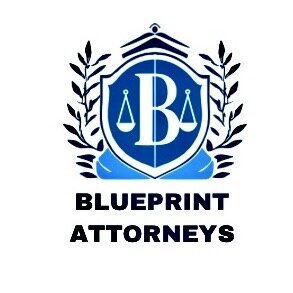Best Nonprofit & Charitable Organizations Lawyers in Aba
Share your needs with us, get contacted by law firms.
Free. Takes 2 min.
List of the best lawyers in Aba, Nigeria
About Nonprofit & Charitable Organizations Law in Aba, Nigeria
Nonprofit and charitable organizations in Aba, Nigeria, like in other parts of the country, play a crucial role in social and economic development. These organizations are typically established to address various societal needs, ranging from poverty alleviation to education, health care, and more. The legal framework governing these entities is designed to enable their smooth operation while ensuring accountability and transparency. Understanding the legal requirements is key to setting up and running a successful nonprofit or charitable organization in Aba.
Why You May Need a Lawyer
Engaging a lawyer specializing in Nonprofit & Charitable Organizations law can be invaluable in various situations, including:
- Establishment: Assistance in drafting and reviewing the necessary documents to register and launch a nonprofit organization.
- Compliance: Ensuring adherence to federal and local laws, including tax and reporting obligations.
- Governance: Setting up efficient governance structures and resolving internal disputes.
- Contracts: Drafting and negotiating contracts with donors, partners, and service providers.
- Fundraising: Navigating the legalities associated with fundraising efforts.
Local Laws Overview
Key aspects of the local laws concerning Nonprofit & Charitable Organizations in Aba include:
- Registration: All nonprofits must register with the Corporate Affairs Commission (CAC), specifying their objectives and operational guidelines.
- Tax Exemptions: Registered nonprofit organizations may apply for tax-exempt status. This requires compliance with Section 23 of the Companies Income Tax Act (CITA).
- Governance: Effective governance structures need to be maintained, with clear definition of roles within the organization to ensure accountability.
- Reporting: Annual reports and financial statements must be properly documented and submitted to relevant authorities.
Frequently Asked Questions
What is the process of registering a nonprofit organization in Aba?
To register a nonprofit in Aba, you must apply through the Corporate Affairs Commission (CAC), providing the necessary documentation such as a mission statement, a constitution, and details of the trustees.
Are charitable organizations required to pay taxes?
Charitable organizations may be eligible for tax exemption upon registration with the Federal Inland Revenue Service (FIRS), provided they adhere to certain requirements laid out under Nigerian tax laws.
What legal structures can a nonprofit organization adopt?
Nonprofit organizations can be registered as Incorporated Trustees, which is the most common structure, allowing them to operate independently under a governing board.
How long does the registration process typically take?
The complete registration process can take several weeks to months, depending on the efficiency of document preparation and the workload at the Corporate Affairs Commission (CAC).
What are the annual reporting requirements for nonprofits?
Nonprofits must submit annual reports and financial statements to demonstrate their financial activities and compliance with regulatory standards.
Can nonprofit organizations engage in commercial activities?
Yes, but any income generated from commercial activities should be reinvested into the nonprofit’s objectives, not distributed as profits.
What types of fundraising activities are permissible?
Fundraising activities must comply with local laws and regulations. Transparency in the use of funds is crucial. Legal guidance can be beneficial in this area.
How are disputes within nonprofit organizations handled?
Disputes within nonprofits can be addressed through internal mechanisms or through legal intervention if necessary, involving mediation or arbitration.
Are there restrictions on foreign donations?
There are regulations regarding foreign donations to ensure they’re used for intended purposes. It’s important to comply with these regulations to avoid any legal issues.
How can a nonprofit maintain its legal status?
Maintaining registration, adhering to reporting requirements, and complying with the law are essential to retaining legal status. Regular consultations with a legal professional can ensure compliance.
Additional Resources
For further guidance and support regarding Nonprofit & Charitable Organizations in Aba, Nigeria, consider reaching out to the following:
- Corporate Affairs Commission (CAC): Oversees the registration and regulation of nonprofit organizations.
- Federal Inland Revenue Service (FIRS): Manages tax-related matters, including exemptions for nonprofits.
- Nigerian Network of Non-Governmental Organizations (NNNGO): Provides support and advocacy for NGOs.
- Local Law Firms: Seek legal advice from firms specializing in nonprofit law.
Next Steps
If you require legal assistance in the field of Nonprofit & Charitable Organizations in Aba, consider taking the following steps:
- Identify your specific legal needs-whether it pertains to registration, compliance, governance, or fundraising.
- Consult a lawyer specializing in nonprofit law to gain clarity on your legal obligations and rights.
- Prepare all necessary documentation related to your organization’s activities and financial status.
- Schedule a meeting with relevant regulatory bodies if required, to ensure that you meet all local legal requirements.
By following these steps and utilizing the resources available, you can successfully navigate the legal landscape for Nonprofit & Charitable Organizations in Aba, Nigeria.
Lawzana helps you find the best lawyers and law firms in Aba through a curated and pre-screened list of qualified legal professionals. Our platform offers rankings and detailed profiles of attorneys and law firms, allowing you to compare based on practice areas, including Nonprofit & Charitable Organizations, experience, and client feedback.
Each profile includes a description of the firm's areas of practice, client reviews, team members and partners, year of establishment, spoken languages, office locations, contact information, social media presence, and any published articles or resources. Most firms on our platform speak English and are experienced in both local and international legal matters.
Get a quote from top-rated law firms in Aba, Nigeria — quickly, securely, and without unnecessary hassle.
Disclaimer:
The information provided on this page is for general informational purposes only and does not constitute legal advice. While we strive to ensure the accuracy and relevance of the content, legal information may change over time, and interpretations of the law can vary. You should always consult with a qualified legal professional for advice specific to your situation.
We disclaim all liability for actions taken or not taken based on the content of this page. If you believe any information is incorrect or outdated, please contact us, and we will review and update it where appropriate.









